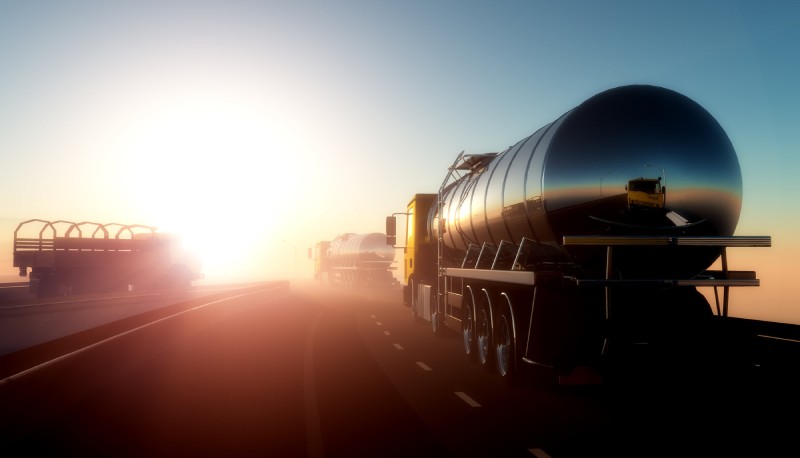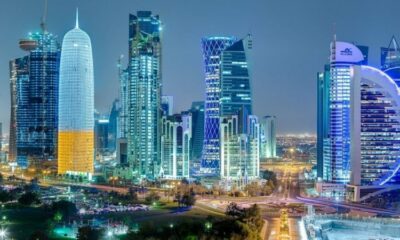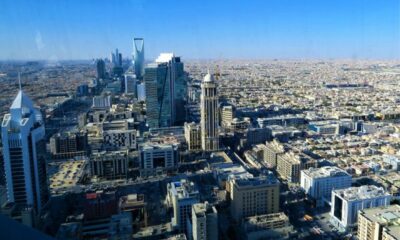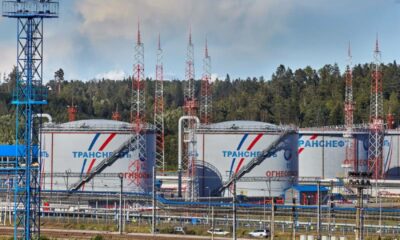World
The Middle East is unable to supply all of the diesel that the EU requires

In preparation for the EU’s ban on seaborne imports of Russian refined petroleum products, Europe has increased its Middle Eastern and American fuel imports. Europe was still the largest consumer of Russian diesel just prior to the ban, and once the embargo goes into effect on Sunday, it will need to significantly increase imports from suppliers other than Russia.
However, due to delays in the commissioning of some new refineries, the Middle East may not be able to meet Europe’s demand despite adding planned refinery capacity in recent years.
The EU will stop importing Russian refined oil products by sea on February 5 and will have to replace about 1 million barrels per day (bpd) of Russian fuel, including 600,000 to 650,000 bpd of diesel.
In advance of the embargo, Europe has been purchasing Russian supplies in bulk.
According to estimates in the most recent Oil Market Report released by the International Energy Agency (IEA), Russia’s diesel exports reached a multi-year high in December of 1.2 million barrels per day, with 720,000 of those barrels going to the EU.
Analysts predict that after February 5, the global diesel markets and product flows will change, with Russia looking to move its refined products elsewhere and Europe bringing in more supply from the United States, Asia, and the Middle East.
Europe will also need to increase supply from the United States and Asia due to delays at some new refineries in the Middle East.
The top OPEC producers in the Middle East have increased or pledged to increase their exports of refined goods to Europe.
According to a person with knowledge of the situation, Kuwait, for instance, plans to increase its diesel exports to Europe by fivefold this year, to approximately 50,000 barrels per day. In addition, the largest oil producer in OPEC’s Gulf expects to double its jet fuel exports to Europe in 2023 to nearly 5 million tons.
This week, Kuwait National Petroleum Company also stated that the Mina Al-Ahmadi refinery had shipped its first shipment of diesel, which was developed for European markets and complies with international environmental standards and specifications, and is suitable for cold weather. The shipment contained approximately 38,000 tons.
However, Kuwait’s enormous brand-new Al-Zour Refinery, which can process 615,000 barrels per day of crude and produce approximately 145,000 barrels per day of diesel, has not yet reached full operational capacity. The refinery will probably start a second unit this month and the third and final line in April.
Analysts anticipate that Saudi Arabia’s Jazan refinery and Oman’s Duqm refinery, both in the process of expansion, will be able to fill some fuel and diesel shortages in Europe by the end of 2023 at the earliest.
Ahmed Mehdi, a commodities analyst with Renaissance Energy Advisors, told that “Middle East refining projects are subject to commissioning delays.” Mehdi stated this.
Mehdi added, “Europe won’t benefit from the additional barrels until late 2023.”
Refiners in the United States, on the other hand, see the possibility of expanding exports to Europe.
On Marathon Petroleum’s earnings call this week, Senior Vice President of Global Clean Products Value Chain Brian Partee stated, “We do see an incremental pull into Europe.”
Analysts predict that after importing a lot of Russian diesel and other goods at the end of 2022, Europe will be well-stocked when it enters the embargo.
“Europe will enter the post-Russian diesel world relatively well supplied. A rush for Russian diesel imports in Q3 2022 combined with a warmer European winter and well-supplied natural gas has softened the diesel supply shock and panic buying witnessed in October 2022,” Pamela Munger, Senior Market Analyst at Vortexa, said last month.
ING strategists Warren Patterson and Ewa Manthey commented on the embargo this week, “Despite this imminent disruption to flows, the market appears relatively calm – the gasoil crack has been trending lower since the end of January. A likely reason for this is that the market has had a significant amount of time to prepare for the ban. We have seen strong inflows of middle distillates into Europe ahead of 5 February.”
According to ING, gasoline stocks in the Amsterdam-Rotterdam-Antwerp (ARA) hub have been rising since the beginning of December, bringing inventories back to the average over the past five years and to their highest level since July 2021.
“However, we would expect to see tightening once the ban is in place.”
-

 Business3 weeks ago
Business3 weeks agoPrakash and Kamal Hinduja: Driving Social and Environmental Change
-
Education4 weeks ago
Fred DuVal: University Leadership as a Critical Resource for Climate Change Research and Life-Saving Solutions
-

 Health3 weeks ago
Health3 weeks agoThe Hinduja Brothers Commitment to Global Health: Empowering Communities Across Borders
-

 Cryptocurrency3 weeks ago
Cryptocurrency3 weeks agoDesigned For The Masses: How Akasha (AK1111) Is Unlocking Crypto For The Next Billion Users
-

 Cryptocurrency4 weeks ago
Cryptocurrency4 weeks agoNexaglobal & Future World Token (FWT): Could This Be the Next Big Crypto Investment of 2025?
-

 Sports4 weeks ago
Sports4 weeks agoWomen’s NCAA Tournament 2025 Sweet 16: Full Schedule, Fixtures, Teams, Bracket, and How to Watch March Madness Basketball Match Live
-

 Startup2 weeks ago
Startup2 weeks agoCost-Saving Strategies Every Small Business Owner Should Know to Boost Efficiency
-

 Startup3 weeks ago
Startup3 weeks agoMatthew Denegre on the Art of Deal Sourcing: Finding the Right Investment Opportunities





















